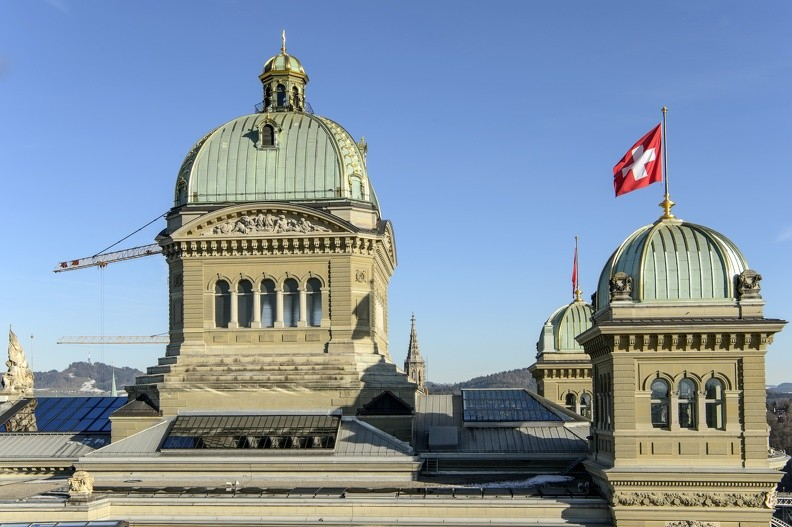Share post now

global
The Alliance Sud magazine analyses and comments on Switzerland's foreign and development policies. "global" is published four times a year (in german and french) and can be subscribed to free of charge.
Global, Opinion
29.09.2022, International cooperation
Corona, climate and conflict are now exacting their price: the UN observes that for 90 per cent of all countries, the "Human Development Index" will decline for 2020 or 2021. During the global financial crisis, just one in ten countries was affected.

© Parlamentsdienste 3003 Bern
The view of Andreas Missbach, Director of Alliance Sud
Cassis, Pfister and Blocher[1] – all three gentlemen are vying to score points with the adjective they use to qualify the n-word. Before we come to the adjective, the noun. Switzerland's neutrality was vital while neighbouring countries remained at war. This was so at the time of the Franco-German War of 1871, and even more so during the First World War, when the country was riven by differing sympathies with the warring parties.
During the Second World War, neutrality notoriously went hand-in-hand another element – that of profiteering from business with the warring parties. Up to 1944, Swiss firms supplied enormous quantities of military materiel to Nazi Germany. During the war years, the situation could still have been described as an emergency, but the business dealings continued thereafter, as neutrality morphed into a fig leaf. "Neutrality", meaning "we do business with everyone and do not care about sanctions", was one of the three factors (together with the financial centre and tax legislation) that propelled Switzerland to global dominance as a commodity trading hub.
As a non-UN member, Switzerland has not adopted UN sanctions, including those imposed on Rhodesia (today Zimbabwe) or apartheid South Africa. Mark Rich, the godfather of Swiss commodity trading, whose firm became Glencore and whose “Rich boys” established companies like Trafigura, described his oil deals with the racist regime in southern Africa as his "most important and lucrative business". But the grain traders on the shores of Lake Geneva also profited from the USA's grain embargo against the Soviet Union and stepped into the breach, although ideologically and practically, Switzerland was by no means neutral during the Cold War.
Now to the adjectives: Ignacio Cassis' "cooperative neutrality" would have put the profiteering into perspective, in that it would have cemented the new status quo created by the Russian invasion (EU sanctions are being adopted). Yet the Federal Council rejected the Federal President's adjective.
Gerhard Pfister's "decisionistic (concept of) neutrality" is less clear. To go by his interview in the Le Temps newspaper, "human rights, democracy and the free expression of opinions" keep profiteering in check. According to an interview with the Tamedia newspapers, it is more about the values of the "western economic and social model", in other words, "rule of law, security of private property and social welfare". Pfister has also failed with respect to a specific matter; in the Council of States, his party The Centre rejected the proposal that Switzerland should also be able to impose its own sanctions.
Christoph Blocher's "integral neutrality" favours a return to unbridled profiteering. He once defended this approach against the critics of apartheid. The “Working Group on Southern Africa” (ASA), which he founded and chaired, fulminated against sanctions and provided South African right-wing politicians and military officers with a platform for their inhumane messages. The ASA also organised propaganda trips: "In the footsteps of the Boers".
I would also like to put forward some adjectives, as Switzerland would be best served by neutrality that is "compassionate (refugees) and globally sustainable (human rights before profiteering)".
[1] Ignazio Cassis of the Liberal Party is Federal Councillor, head of the Federal Department of Foreign Affairs and President of the Swiss Confederation in 2022. Gerhard Pfister, member of the National Council, leads the Centrist Party (Mitte). Christoph Blocher is a former federal councillor and éminence grise of the far right xenophobic Peoples Party (SVP).
Share post now

global
The Alliance Sud magazine analyses and comments on Switzerland's foreign and development policies. "global" is published four times a year (in german and french) and can be subscribed to free of charge.